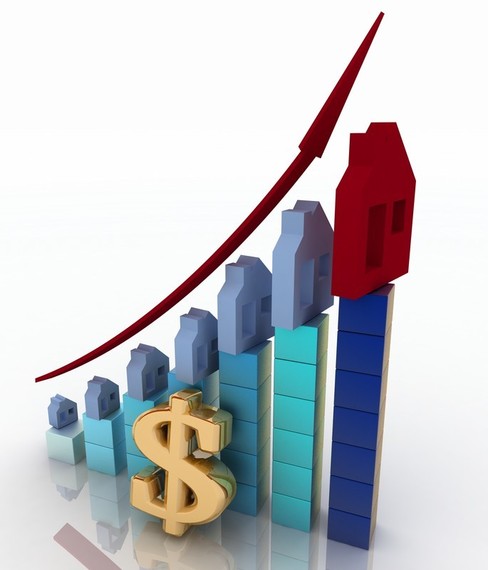The Case-Shiller Home Price Index is reporting steady price increases across the nation. The Case-Shiller 20-City Composite Index rose 5% year over year in February. This was compared to a 4.5% rise in January. The February gain was the largest monthly gain since July 2014. Of course, real estate is local, and some markets like San Francisco and Denver are doing so well they're skewing results to the upside.
Supply and Demand Factors
Markets, whether real estate or groceries, all respond to supply and demand pressures. And there are a three supply factors and one demand item that are putting upward pressure on prices.
Homeowners aren't Selling - Supply
Though the number of existing home sales has been rising consistently, the increase hasn't been enough to spur homeowner to enter the market as sellers. Many are still underwater, owing more on their homes than they're worth. Many others do not have enough equity to pay sales costs and pocket any money, so they're in a holding pattern.
Many are concerned that even if they can sell with some equity that they will not be able to find another suitable home. They see prices rising, but because a lot of the reason is low supply with rising demand, they are not sure that there is another home out there right for them at this time.
Builders aren't Building - Supply
Last year only about 700,000 new single family homes were built. This is far below what is considered a normal market, so the supply is low for new homes. Builders are reluctant to build on spec, adding inventory when they don't see adequate demand. Their financing is still more restrictive than before the bust, so extra scrutiny goes into starting new projects.
Fewer Foreclosures Suitable for Retail Buyers - Supply
When foreclosures were pouring into the market right after the bust, many were occupied by the owners and were in livable condition. They didn't need extensive rehab work. These homes qualified for mortgage loans, so retail buyers were able to grab them up. Now the situation is different. Most of the foreclosures are abandoned home in poor to terrible condition.
Investors are loving these as fix & flip opportunities, and the competition for them is causing prices to go up on the front end, resulting in increases at the sale end of the flip. There is less fix & flip to rental investors, with an increase of flipping in the retail market.
Mortgage Rates are Still Low - Demand
Freddie Mac reports that the 30-year fixed mortgage rate is around 3.56% compared to 4.33% at this time last year. This helps to grow demand with more people able to qualify for higher priced homes with the lower mortgage payments available.
Opposing Forces
There are a couple of opposing forces holding back more demand and even higher prices.
Tight Lending Rules
Lenders are still being stingy with mortgages. Tighter lending qualification requirements are keeping many buyers out of the market. There is some loosening, but it's a far stretch from the liberal lending practices prior to the crash.
General Economic Concerns
The outlook for jobs isn't looking particularly rosy, and wages are pretty much stagnant. There is a general concern for job security and economic prosperity among consumers. High student debt and poor job prospects are keeping graduates out of the first time buyer mode.
So, with a 4-to-2 score, four positive factors and two negative, prices are still rising. It's not a bubble ... yet. As prices continue to rise, more homeowners will see enough equity to consider selling, so this could increase supply and offset some of the price pressure. However, there is also some evidence that first time buyers are returning to the market. It's going to be an interest year for housing.

